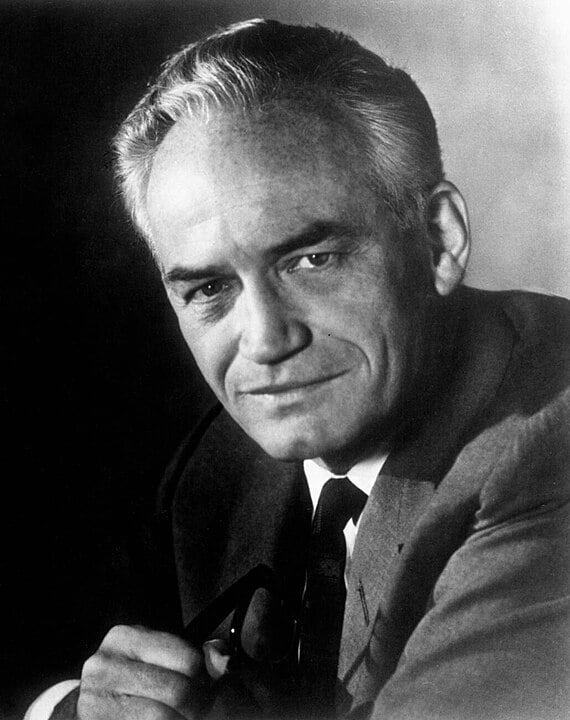When we think of “conservatives” today, we tend to think of evangelicals, conservative Catholics, pro-lifers, and other advocates of “family values.” It was not always so.
Lane Scott, in an essay for The American Mind entitled “How Based Thou Art,” recalls how 20 years ago nearly all of the young right wingers and Republican intellectuals that she knew were libertarian atheists:
It’s difficult to remember now, but in the early 2000s young intellectuals on the Right did not dabble in religion. The dawn of a new millennium offered only two alternatives to the milquetoast, Clintonesque liberalism that had dominated the 1990s: libertarianism or George W. Bush’s evangelical “compassionate conservatism.” Tech bros or values voters.
Evangelicalism was about as far away from the academy as possible, at least as far as GOP elites were concerned. The Reagan Revolution had been orchestrated by mostly atheist supply-side libertarians and war-hawk neocons, after all. Values voters were a large and important faction, but outside of a few departments in a handful of universities, they had scant representation among the party’s intellectual elite.
I’ve got news for her. At least there were “values voters” in her day, however condescended to by the Republican elite. Those were mainly brought in with the advent of the Moral Majority in 1979.
In the 1960s, when right wing conservatism was embodied by Barry Goldwater–a supporter of abortion, gay rights, and legalized drugs–nearly all the conservatives I knew were libertarians of the Ayn Rand creed (“the virtue of selfishness,” militant atheism, opposition to altruism, and laissez faire capitalism). Come to think of it, all of the devout Christians I knew, growing up in rural Oklahoma, and I knew a lot of them, Baptists and Fundamentalists as well as my fellow mainline Protestants, were liberal Democrats.
There were Christian conservatives at the time, as I know now, but the “fusionism” that in 1981 elected Ronald Reagan, redefined conservatism, and is much maligned today, was a true bringing together of people with very different perspectives: libertarians, “values voters,” fiscal conservatives, and national defense conservatives. They were united in their anti-Communism, patriotism, and opposition to the liberal welfare state.
Why were Scott’s young conservative friends so opposed to religion? I think she hits the nail on the head:
Twenty years ago, libertarianism offered young right-wingers all the sexual freedom and selfishness of the reigning Boomer culture, but none of the bozo sentimentalism that went along with it. Young people sensed that the bill for the Boomers’ multi-decade bender would soon come due; therefore, a firm “socially liberal but fiscally conservative” stance afforded them a math-friendly ticket to the post-1960s sexual revolution party.
As Millennials were brought up in the most permissive and sex-positive culture imaginable, the options for genuine rebellion were slim. A few of us actually did embrace orthodoxy and converted to serious religion. But far more Millennial intellectuals simply rejected our social duty to pay the bill for our parents’ party, and embraced license, libertarianism, and the siren song of New Atheism.
I must hasten to add, though, that many libertarians are devout Christians and impeccably pro-life. I know some, and some of the Christian libertarians, such as Sen. Rand Paul and his father Ron, are leaders of the libertarian movement. But the desire for “sexual freedom” is indeed a big factor in the rejection of religion, evident too in today’s “Barstool conservatism.”
In hindsight, Scott shows how ridiculous the Godless conservatism was:
Surveying the crime, homelessness, drug addiction, and general misery of 2020s America, it seems ridiculous now to remember that thoughtful people on the Right once proposed that our social ills could be solved by simply legalizing all the drugs. People actually argued—and believed—that our greatest problems in the early 2000s were caused by the remaining adults in society who wanted to continue saying NO to the precious few perversions and social catastrophes we had yet to unleash. . . .
Twenty years ago, it was possible for thinking people to suspect that the world would be better if religion and faith were kept out of politics, and far from public life. Events have rendered that impossible now. Contrary to Boomer and libertarian social theory, society’s ills aren’t exclusively caused by the few remaining partisans of self-control and sexual boundaries.
She goes on to describe how such naive thinking was exploded by the failures of both progressivism and the Republican elite–the War in Iraq, the 2008 recession, the COVID shutdowns, progressive totalitarianism, the overall cultural malaise, and the messed-up psychology of the survivors. Now, thoughtful conservatives are realizing that our problems come from within and that religion can help them survive “the twin horrors of post-sexual revolution social hellscape and the cruel totalitarian bent of progressive governance.”
She says that today, “the widespread conversion to traditional Christianity is unmistakable among the elite in right-wing universities and political institutions.” She refers to “serious religions,” by which she means that of traditional Catholics–she said you can hardly find a conservative intellectual or politico who has not recently converted to Catholicism–the Orthodox, or Reformed Presbyterians.
What about confessional Lutherans? I have seen this phenomenon in Lutheran churches! Maybe she classifies us with Reformed Presbyterians, as the Reformed Presbyterians do, despite our aversion to Calvinism!
I suppose I have enough Christian libertarianism–or Lutheran libertarianism–in me to worry a little that Catholicism and Calvinism, while they may be “serious,” can easily become political religions, which would explain why they are popular among this set, while posing problems of their own.
Scott concludes, “Young politicos and intellectuals on the Right have recently experienced a strong dose of reality, actually; and now they seek the tools, traditions, social scaffolding, and moral fortitude previous generations of self-governing Christians carried with them into battle.”
I would add, they can carry this Christianity with them into their families, now that they have one. And into their own souls, as they realize that the temporal things–including politics–that they thought so important will all pass away as will they.
Photo: Barry Goldwater (1960) by United States Senate – https://www.senate.gov/about/images/goldwater-barry-morris.htm, Public Domain, https://commons.wikimedia.org/w/index.php?curid=79152516












